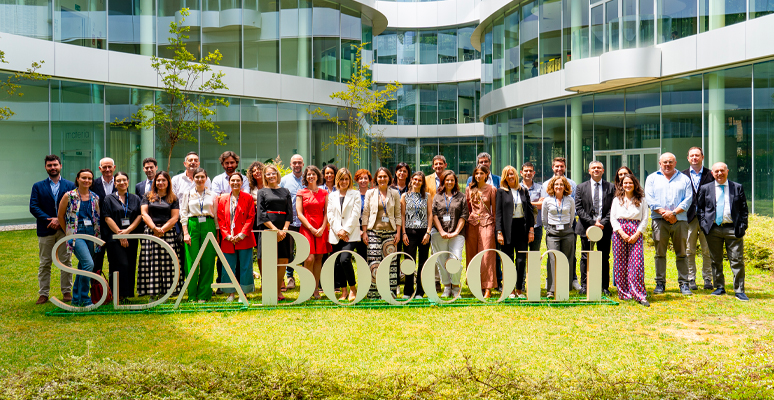In April a delegation of researchers from the GHNP knowledge group attended the conference of the International Research Society for Public Management (IRSPM) in Budapest, together with other researchers from all over the world. The event was opened by Prof. Geert Bouckaert of KU Leuven, who urged researchers “to be scientific and be relevant,” a call that strongly recalls one of the main goals of our institution.
Contributing societal value through a balanced combination of research and management practice is one of the goals that has always been in SDA Bocconi’s DNA, and it was this principle that the GHNP delegation discussed at the conference. During the three days in Budapest, the group’s researchers presented some recent studies about the role of public managers in increasing the wellbeing of the community they manage, in favor of users, stakeholders and citizens. In short, in improving public value.
The studies have highlighted which paths and strategies public sector organizations can adopt to achieve this goal: for example, investing in leadership training programs to support employee wellbeing and performance, especially in times of crisis, with a focus on developing key skills associated with ethical leadership, such as altruistic motivation and the capacity to communicate an ethical and valuable message. One other topic explored was the collaborative innovation in public services or how to address inequality in the management of public services. To improve the ability of organizations to pursue social equity, public managers must increasingly pay attention to stakeholder engagement strategies, organizational mechanisms and the development of multidimensional KPIs.
Particular attention was paid to Public Health and its governance. The dynamics of managing change in health services require consolidated models of service design that take into consideration various enabling factors, such as the convergence between managerial and clinical leadership, the motivation of clinical staff, the support of local political institutions, the benefit perceived by patients, effective management of logistics and data and a step-by-step approach to drive the implementation process.
At the heart of this modern healthcare management must be the experience of the patient, with the aim of improving both the quality of assistance provided by the healthcare system and the path of the patients themselves but without neglecting the experience of the healthcare professionals. These figures also substantially contribute to the creation of value. The final two studies of significance included on that examined the gender diversity of professionals with managerial roles in healthcare and how it favors the evolution of public professional organizations, and one on the role of organizational resources in assessing the level of wellbeing and work-related stress of employees, especially today, in a unique context such as that of the post-pandemic crisis.
SDA Bocconi School of Management






